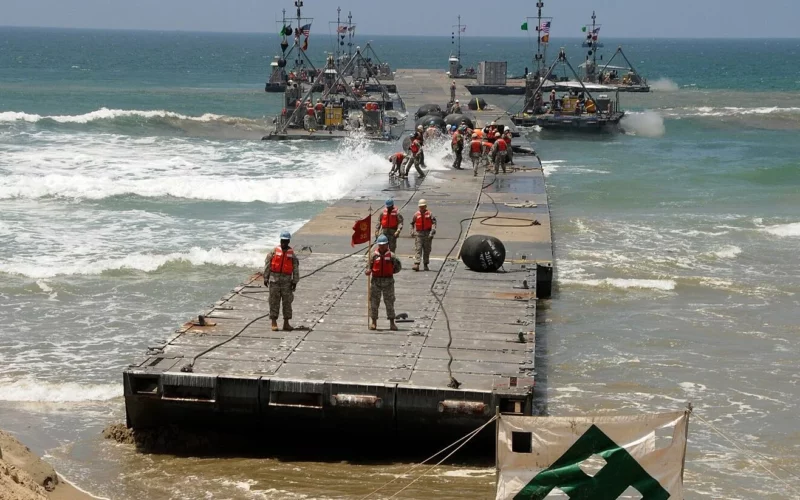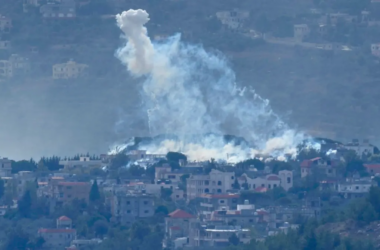The US Department of Defense announced that a recently installed pier designed to facilitate aid deliveries to the Gaza Strip will undergo temporary removal and repairs. This decision follows damage caused by severe weather conditions. Pentagon spokeswoman Sabrina Singh confirmed on Tuesday that the suspension of humanitarian aid deliveries via the “Trident” pier is necessary to address the structural issues caused by high seas and a North African weather system.
“The rebuilding and repairing of the pier will take at least over a week, and, following completion, will need to be re-anchored to the coast of Gaza,” Singh said during a news briefing. “Upon completion, the intention is to re-anchor the temporary pier to the coast of Gaza and resume humanitarian aid to the people who need it most.”
The repair announcement comes amid increasing concerns from humanitarian groups about the dire state of aid access to Gaza. Twenty organizations, including Amnesty International, the Norwegian Refugee Council, and Doctors Without Borders (MSF), have highlighted the insufficiency of current aid deliveries despite the pier’s installation. They emphasize that Israel’s prolonged bombardment and siege of Gaza, now nearing its eighth month, have exacerbated the humanitarian crisis.
The ongoing Israeli military operations have resulted in significant casualties, with more than 36,000 Palestinians reported killed since October. The siege has also led to critical shortages of essential supplies, prompting United Nations officials to warn of impending famine.
In a statement released on Tuesday, the aid organizations stressed the need for prioritizing land crossings for humanitarian access. “As Israeli attacks intensify on Rafah, the unpredictable trickle of aid into Gaza has created a mirage of improved access while the humanitarian response is in reality on the verge of collapse,” the statement read. “The ability of aid groups and medical teams to respond has now all but crumbled, with temporary fixes such as a ‘floating dock’ and new crossing points having little impact.”
The UN Office for the Coordination of Humanitarian Affairs (OCHA) reported on May 22 that over 800,000 Palestinians had been newly displaced in southern Gaza since early May due to Israel’s ground operations in Rafah. The Rafah crossing, a key entry point for aid, has been closed since May 7 following Israeli control, leaving thousands of aid trucks stranded in El Arish, Egypt.
While the Karem Abu Salem crossing (Kerem Shalom) remains operational, it prioritizes commercial trucks, further limiting the flow of humanitarian aid.
Humanitarian groups and rights organizations continue to advocate for an immediate and sustained ceasefire and for reliable and predictable routes for aid delivery into Gaza. They argue that the US-built pier, despite its intentions, falls short of addressing the critical needs on the ground.
The US Central Command (CENTCOM) reported that, as of Friday, 1,005 metric tonnes of aid had been delivered to Gaza via the pier, with 903 metric tonnes distributed to a UN warehouse. The pier, which cost $320 million and opened two weeks ago, has encountered several operational challenges, including crowd control issues and vessel displacement due to heavy seas.
Despite these efforts, humanitarian groups urge more consistent and secure land access, advocating for stronger pressure on Israel to allow steady deliveries into Gaza.








